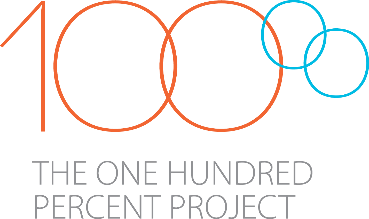Research
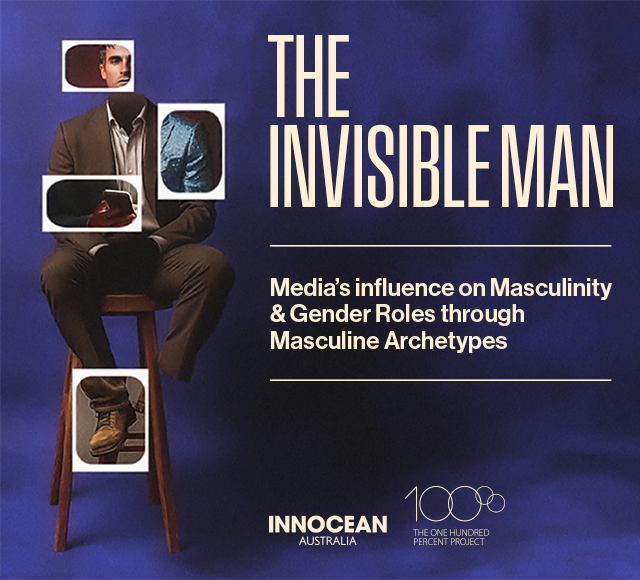
In collaboration with INNOCEAN Australia and The 100% Project
The Invisible Man:
Media’s Influence on Masculinity and Gender Roles through Masculine Archetypes
The current discourse around masculinity couldn’t be more relevant for those aiming to resonate with future generations of consumers. Yet today’s media and marketing continue to sell an image that doesn’t reflect the modern Australian man.
This research highlights the disconnect between the version of masculinity portrayed by advertisers and the reality of the modern Australian man.
Navigating Loss - Understanding the impact of psychological safety on mens attitudes towards gender quotas (2023)
In January 2023, The 100% Project published a White Paper titled ‘Men and Gender Quotas: What’s loss got to do with it?’. This paper outlined research which found that men are less likely to support gender quotas, and may in fact actively resist them, when they associate gender quotas with loss of meritocracy and loss of leadership identity.
This white paper is an extension of the research outlined in ‘What’s loss got to do with it?’ and was conducted to replicate the earlier findings, as well as build on them by investigating psychological safety as a potential strategy to alleviate resistance. The current study did replicate previous findings and found that men are less likely to support gender quotas when they associate quotas with loss of meritocracy in the workplace and loss of leadership identity. In addition, the research outlined in this white paper shows that when men experience high levels of feelings of loss of leadership identity but are also in an environment that is psychologically safe they are less likely to resist gender quotas. Psychological safety did not affect levels of resistance in men who experience high levels of loss of meritocracy.
The focus of this white paper is on psychological safety and how this may serve as part of a strategy to alleviate resistance to gender quotas (in men).
If you would like to find out more about this research, please email Jane Hill, The 100% Project’s Chair.
Download the research.
Saving the Fall - Can Psychological Safety Help Women Navigate the Glass Cliff? (2024)
The results of this study have implications for organisational culture and the equitable representation of women in leadership roles.
The Glass Cliff describes the tendency to appoint women to precarious leadership positions during times of organisational crisis or significant change. This phenomenon has far-reaching consequences, including career impacts for the women involved, but also in shaping perceptions of women’s leadership capabilities more broadly.
If you would like to find out more about this research, please email Jane Hill, The 100% Project’s Chair.
Download the research.
Women in Finance - Beyond the numbers (2023)
The 100% Project and The Group of 100 has partnered in this research project aimed to understand the current gender DEI initiatives in Australian ASX100 organisations, the common barriers to improvement and key factors that differentiate successful initiatives.
In particular, this research focuses on finance professionals, giving voice to gender DEI experiences to a profession and a function outside the Human Resources department, where most current gender DEI initiatives originate and operate. The purpose of this report is to inform today’s leading CFOs of an unbiased assessment of the key elements underpin successful gender DEI initiatives, which in turn, contribute to creating better businesses for tomorrow.
If you would like to find out more about this research, please email Jane Hill, The 100% Project’s Chair.
Download the research.
Men and Gender Quotas What's loss got to do with It? (2023)
Our new research that is focused on the potential losses perceived by men in relation to gender quotas is soon to be released.
The study focuses on loss of opportunity to attain senior leadership positions, loss of leadership identity, and loss of belief in a just and meritocratic society has now been released.
If you would like to find out more about this research, please email Jane Hill, The 100% Project’s Chair.
Download the research.
'Breaking Dad' Psychological safety and mens' parental leave (2021)
Our new research that investigates the role that psychological safety in the workplace plays, enabling men to be able and willing to ask for and take parental leave and/or work flexibly, so they can spend more time with their family has now been released.
We have also released a number of podcasts with senior male leaders who talk about their experience asking for and taking parental leave and these can be found in the podcast section of our website.
If you would like to find out more about this research, please email Jane Hill, The 100% Project’s Chair.
Download the research.
Leadership Styles and Gender Imbalance (2019)
“This latest work from the 100% project brings good news for those who are working hard to create fair, equal and vibrantly successful organisations in Australia. It has taken a next, sturdy and exciting step towards identifying the conditions already in place in some Australian organisations…”
If you would like to find out more about this research, please email Jane Hill, The 100% Project’s Chair.
Download the research.
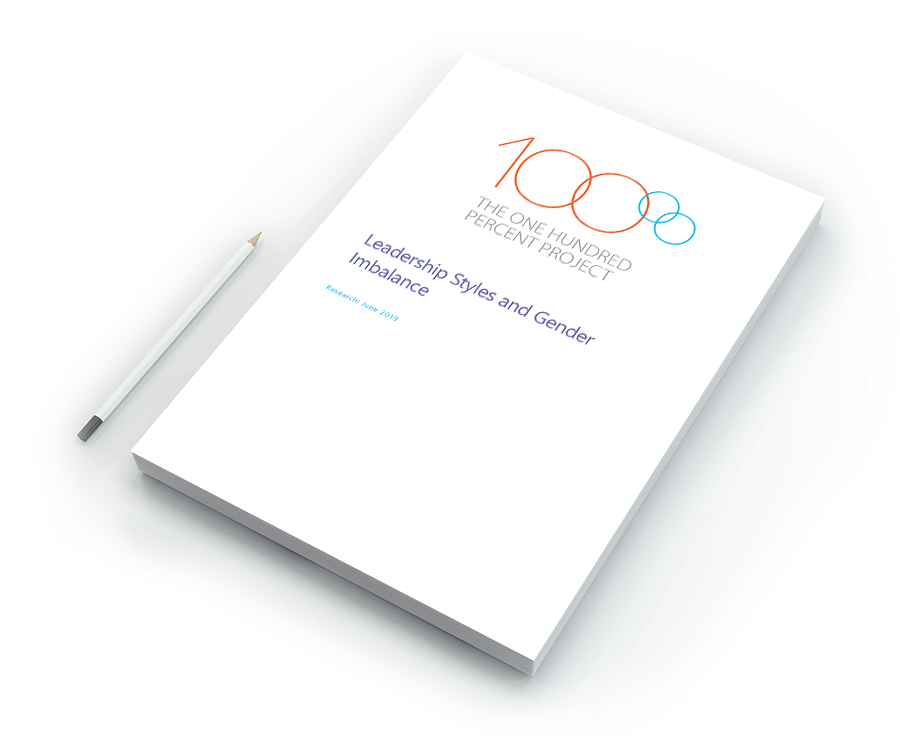
Gender Quotas (2017)
Why is the myth of meritocracy so sticky?
“Mentioning the word ‘quota’ in any context is likely to elicit an emotional response from both men and women. Usually for or against and less commonly with a willingness to explore the conversation and understand what sits behind the emotion. That is why research like this and the discussion that it promotes, is so important…”
If you would like to find out more about this research, please email Jane Hill, The 100% Project’s Chair.
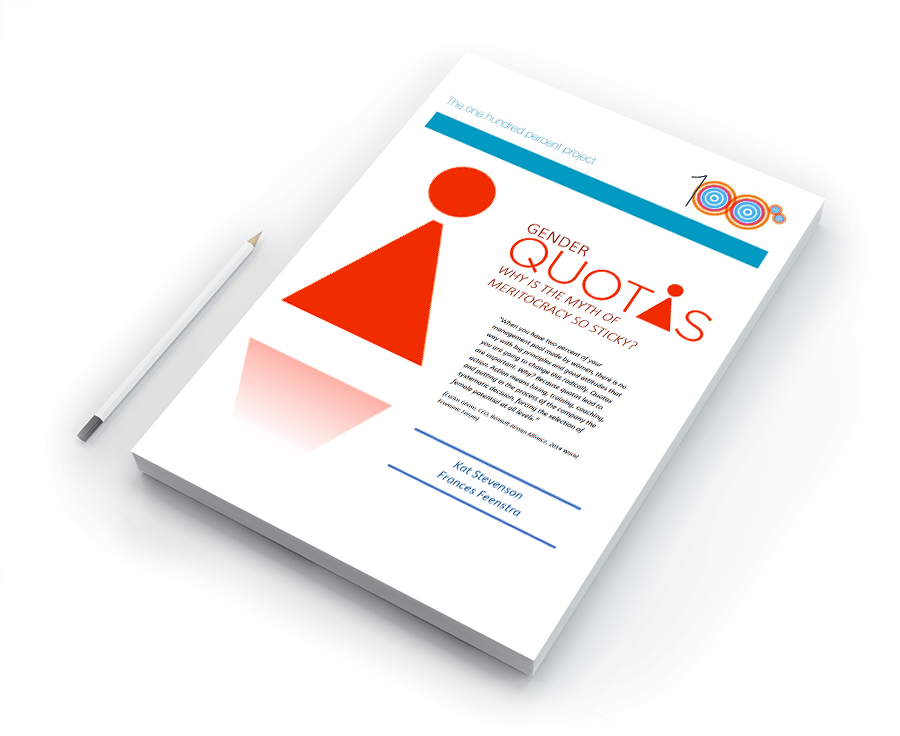
Adaptive Leadership (2015)
An answer to gender imbalance in the workplace?
“With this research on the potential connections between adaptive leadership and gender equity in the workplace, the entire 100% Project research team has made a significant contribution to both fields, building on their own work and the work of others in both domains…”
If you would like to find out more about this research, please email Jane Hill, The 100% Project’s Chair.
Download the research.
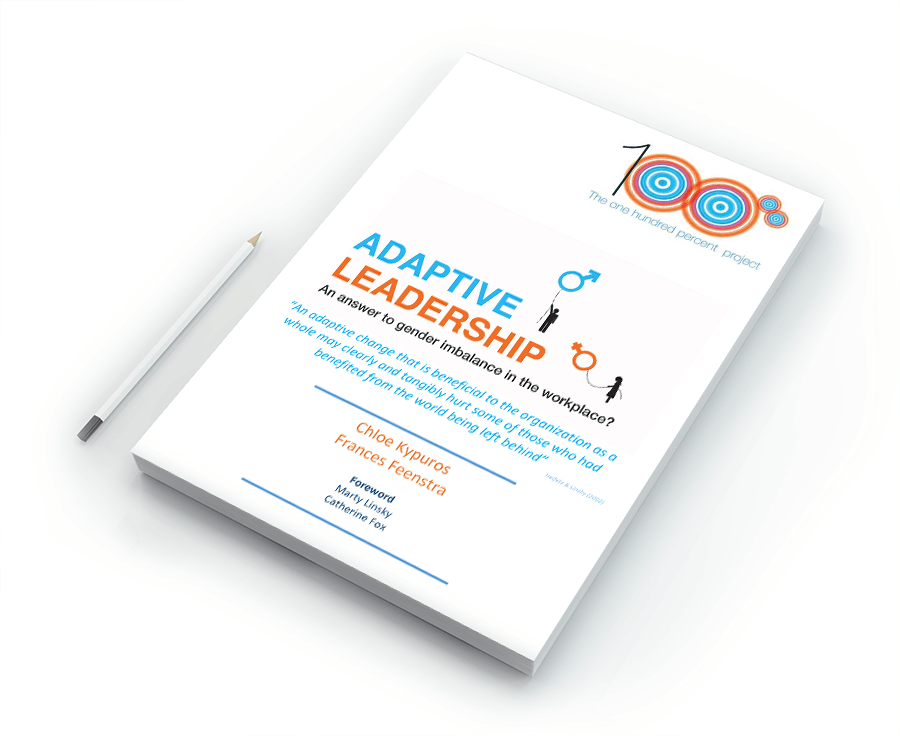
Research Committee

Madeleine Crawford
Madeleine is Co-Chair of the Research Committee and an Organisational Psychologist (Registrar) with a background in management consulting. She joined the Research Committee in 2021.
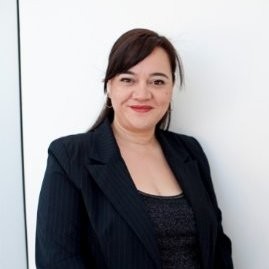
Donna Naismith
Donna is Co-Chair of the Research Committee, and an Organisational Psychologist (Registrar) with a professional background in Human Resources. She joined the Research Committee in 2022.
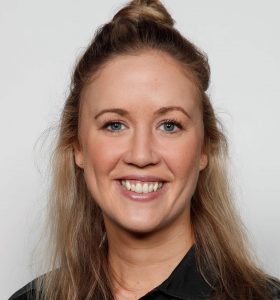
Kat Stevenson
Kat is a Director of The 100% Project, the most recent former Chair of the Research Committee, and a member of the Research Committee. She is a Registered Psychologist working at the Richmond AFL club. She joined the Research Committee in 2016.
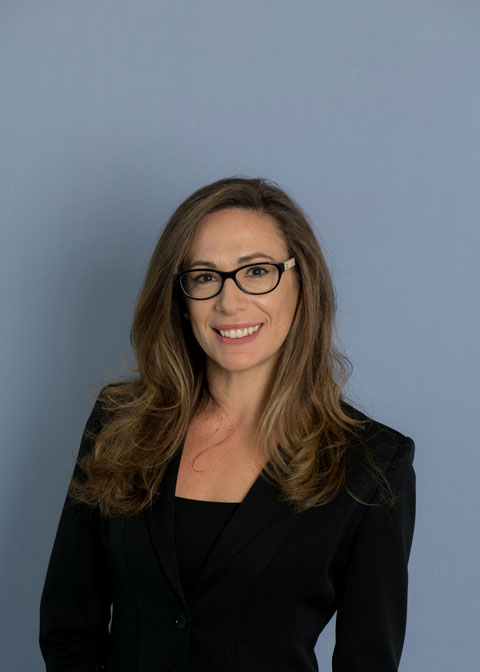
Andrea North-Samardzic
Andrea is a Director of The 100% Project and a member of the Research Committee. She joined the Research Committee in 2022.
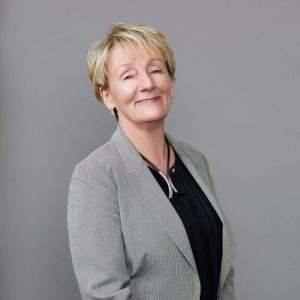
Frances Feenstra
Frances is a Senior Organisational Psychologist and was the inaugural Chair of The 100% Project. She joined the Research Committee in 2015.
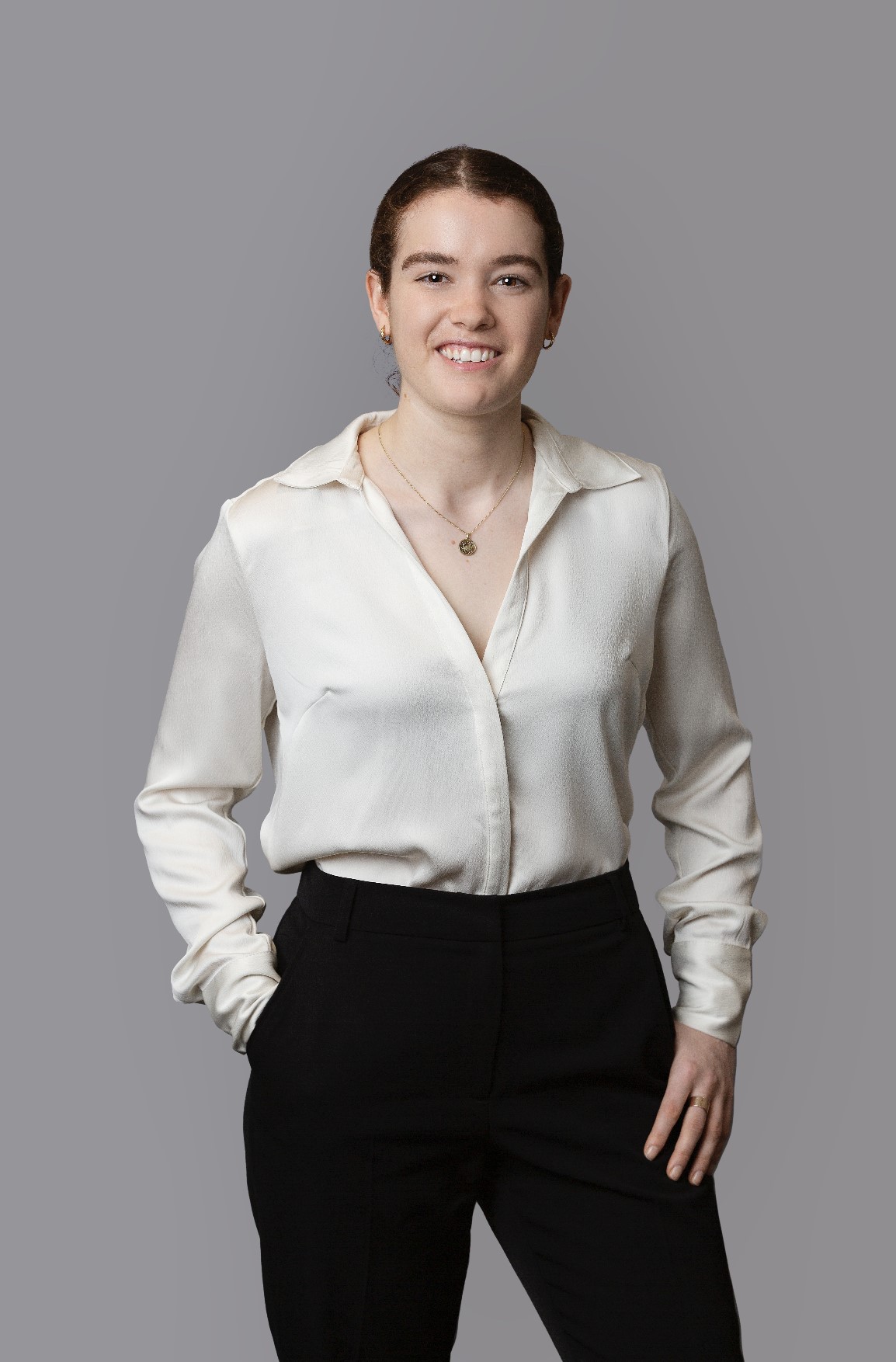
Gillian Harris
Gillian is a registered psychologist, with a Masters in Organisational Psychology, who works as a consultant at People Measures, a firm of organisational psychologists and development experts. Gillian has many interests within the organisational psychology space, one of which is diversity in leadership. She joined the Research Committee in 2022, helping to champion gender equity by producing and sharing research and informing organisations about the value of gender diversity in leadership.
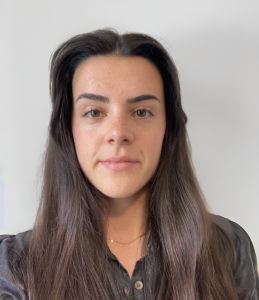
Lillian Starling
Lillian is a Master of Organisational Psychology student at Deakin University. She is currently investigating workplace emotional labour as part of her Master’s thesis. Lillian joined the Research Committee in 2024.
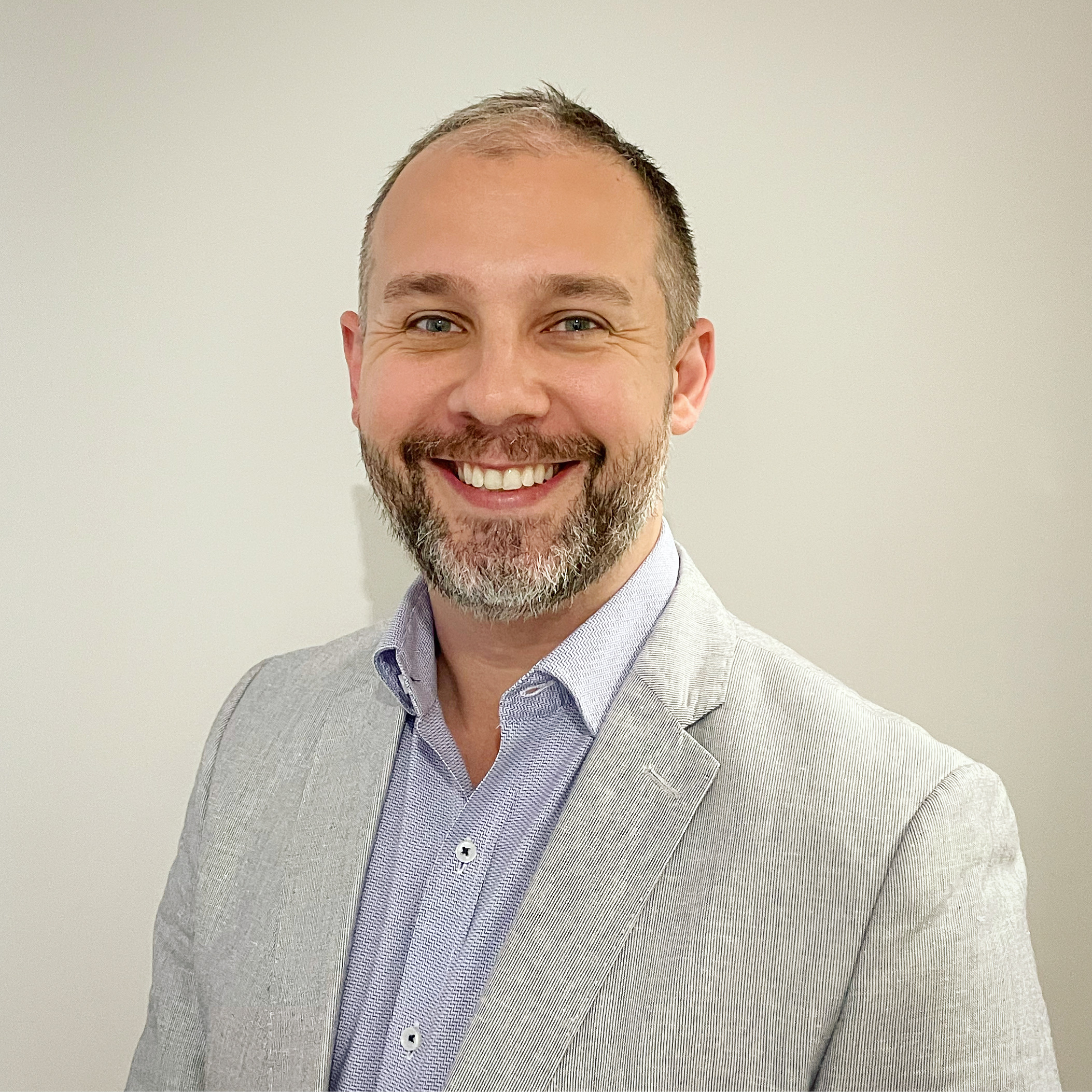
Mark Morris
Mark is a passionate advocate for positive masculinity and gender equality, with over 20 years of leadership, coaching & consulting experience, specialising in DEI. He enjoys challenging gender stereotypes and is an active dad of 2, volunteering at his kids’ school and local football club. He encourages a greater focus on equity & inclusion in schools & early childhood settings to set children on a more equitable, respectful path early on, contributing to reduce the gender pay gap and gender-based violence downstream. Mark joined the Research Committee in 2024.
